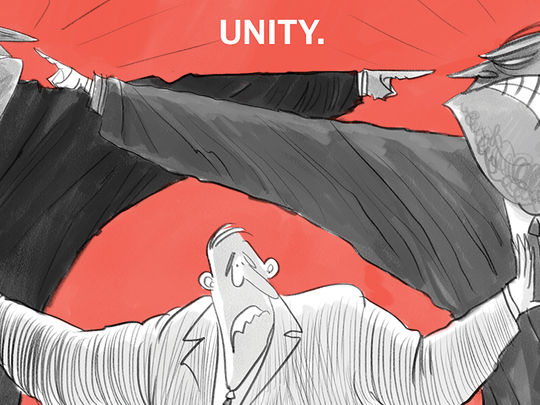
Two major outcomes from the Vienna meeting on Syria, which was held on November 14, will determine the fate of the road map for a political conclusion to the four-year-old conflict. The first is the difficult task that was assigned to Jordan; namely to compile a list of terrorist groups that are active in Syria in order to exclude them from a political settlement in the future. Jordan will coordinate efforts to compile such a list, but it is not clear how Amman will do this and whether it will be successful in carrying out such a mission.
The second outcome, which is tied to the first, is to choose the Syrian opposition delegation that will engage in talks with the Damascus regime sometime at the beginning of next year. Previous efforts to enable such talks met with failure. For starters, the regime considers all opposition groups, political and military, as outlaws and terrorists. It says that any national dialogue will take place only after the terrorists are beaten and Syrian territory is liberated. The challenge for Syria stakeholders to kick-start serious and responsible talks between the regime and the opposition is tremendous.
On its part the Syrian National Coalition (SNC), which is not the only opposition group, has refused to negotiate directly with President Bashar Al Assad’s regime. It has always insisted that the head of the regime cannot be play part in any transitional phase. It says that any political process must be based on the Geneva I principles, which in their view does not see any role for Al Assad in the future of Syria.
The fate of Al Assad remains a stumbling block for participants in the Syria Support Group. Saudi Arabia has not changed its position; that the Syrian despot must hand over power and should not have any role in the future of Syria. The Saudi position is backed by the United States and some European countries.
Even before the Russian military intervention in Syria, and the recent Paris bombings, for which Daesh (the self-proclaimed Islamic State in Iraq and the Levant) claimed responsibility, the view in these capitals was that the fate of Al Assad is not as important as fighting the extremists.
Furthermore, what is a priority is for the Syrian state to remain intact in order to avoid a total collapse similar to what happened in Iraq following the US invasion of 2003.
As Russia and the US try to agree on a political path in Syria, Moscow and Tehran hope to convince other stakeholders of their view on the future of that country. Compiling a list of terrorist groups in Syria will test the position of regional players. Daesh and the Al Nusra Front are designated as terrorist groups, but what about tens of other militias that are fighting the regime under different banners?
The majority of Sunni groups fighting the regime brandish Islamist slogans and names. Most are designated as moderates by regional (Saudi Arabia Qatar and Turkey) and international players (the United States), but the regime and its allies consider them as radicals and extremists.
On the other hand the opposition, both political and military, accuses Hezbollah and Iran’s Revolutionary Guards fighting in Syria of killing civilians and committing war crimes. The SNC considers Russia’s presence in Syria as a form of occupation.
The second difficult challenge is to unite the opposition into a broad coalition of moderate groups that will negotiate with the regime as per the Vienna declaration. Saudi Arabia has called for a meeting next month to be attended by a wide range of opposition and military groups opposed to Al Assad. Riyadh wants to make sure that it maintains influence over most of the groups in order to strengthen its political role and position in future talks over Syria’s future.
But the opposition is not united. The SNC is not the only player even though it claims to be the legitimate representative of the Syrian people. In addition to the SNC there are a number of other groups such as the Local Coordination Committees, Turkmen National Bloc and other Turkmen groups, the Kurdish Supreme Committee and the Assyrian Democratic Organisation.
Recently, Alawite intellectuals opposed to Al Assad formed their own group, the ‘Upcoming Syria’ movement, to counter the popular perception that the conflict in Syria was one between the country’s Alawite and Sunni populations. And few days later Syrian rebels formed what they called the New Syria Army.
Even if efforts to unite the political opposition in Syria do work out, controlling the armed groups on the ground will be difficult. There are literally tens, if not hundreds, of small militias working independently from each other or as part of newly formed fronts that have associations with the Al Nusra Front such as the Army of Conquest. The rivalry between the FSA and other groups has often played into the hands of Daesh.
These recent challenges have strengthened the regime’s position as well as its allies ammunition to argue that the opposition lacks legitimacy and that various militias are no different from Daesh. For now the pressure is on the anti-Al Assad camp to find ways to agree on a list of terrorist groups while seeking to unite the opposition; two tasks that are almost impossible to achieve.
— Osama Al Sharif is a journalist and political commentator based in Amman.










